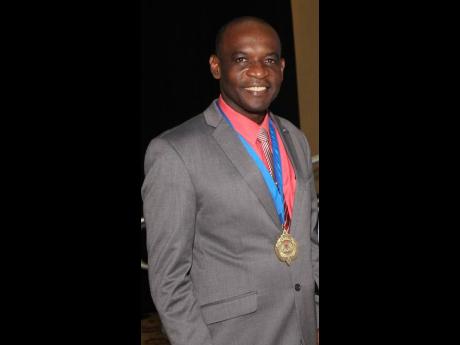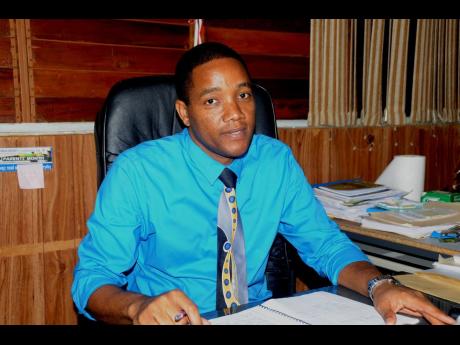Teachers resist requests to record online lessons
Public-sector teachers have been spurning requests to record lessons delivered via online video platforms to allow students who may have missed concepts or were unable to log in to virtual classrooms to rewatch or review classes in their own time...
Public-sector teachers have been spurning requests to record lessons delivered via online video platforms to allow students who may have missed concepts or were unable to log in to virtual classrooms to rewatch or review classes in their own time.
Information reaching The Gleaner is that many of the older teachers, who are not as technology savvy as their younger colleagues, have been predominantly relying on the chalk-and-talk method, leaving students scurrying to write notes before it is erased from white boards.
Although parents have complained about the ongoing challenges their children have been facing and have been calling for the lessons to be recorded, the principals say that while they understand the problem, the teachers have the right to not have their voices captured.
One principal said that some parents have also rejected the suggestion, saying that they do not want their children recorded asking questions.
“My daughter is having challenges at school with one science subject and is basically teaching herself and another [student] because the teacher does not know how to use technology apparently, and uses the chalk-and-talk method only. That is good for face-to-face [classes], but PowerPoint is better for online,” complained one parent, who told The Gleaner that it was the major concern for parents in a WhatsApp group.
One parent with children in two separate high schools said her daughter has lost an entire year in one subject area at the traditional institution she attends.
“The subject teacher has disappeared since schools were closed last year. I have to get her moved. I don’t know if the school has heard from the teacher, but the parents and students haven’t,” the parent bemoaned.
Online engagements ‘taking a toll’
Jamaica Teachers’ Association (JTA) President Jasford Gabriel told The Gleaner that the education ministry should provide guidance on the matter.
“With due considerations for all legal ramifications, [the education ministry] will have to give guidance in time to this matter, which is contingent on the new teaching and learning paradigm. Recording is also dependent on the availability of device, connectivity and type of device,” he said.
“The major issue reported is the consistent fall in attendance to the online platforms as we approach the summer. The extensive screen and online engagements are taking a toll,” Gabriel said.
Attorney-at-law Ayisha Robb-Cunningham said copyright issues could arise.
“Parliament will have to make a law for that to be done, but I believe the issue of intellectual property is at play here and must be considered. It depends on what the teachers’ contracts say. If it says they – the Ministry of Education – owns the content provided, then a policy may be issued, but if it is silent, that aspect would have to be examined,” she told The Gleaner.
According to her, despite the guidelines that may be provided by the ministry as per curriculum, once you speak something, you are the owner of the words if they are original.
“Capturing of images would also be subject to such rules,” she added.
Jamaica Association of Principals of Secondary Schools President Linvern Wright said that based on consultations, many teachers, like students, were having issues with Internet connectivity as the service provided to schools pre-COVID-19 was insufficient and demand created by the pandemic has worsened the crisis.
“There may be a few who are against their voices being captured for one reason or the other, but the greatest challenge to recording a lesson in full is the ability of the Internet service to carry the load. And it is well known that in some parts of the island that the connectivity service offered is worse than poor. That is not our invention,” Wright, the principal of the William Knibb Memorial High School, told The Gleaner.
Where teachers have disappeared from virtual platforms, he pointed the finger at poor connection.
“The greatest concern, though, is about those students who have not engaged [in lessons] since the pandemic. Teachers with connectivity problems have been urged to come to school and use the schools’ supply, but too often it is also down. What we really feel, as an association – and we have spoken to the Government about it – is the need to do something about the Internet service. ... Schools are suffering and students, too,” said Wright.
Lack of supervision
The principals said that lack of supervision at home for classes often results in absenteeism and many students were also not doing assignment posted. Students who showed interest and participated before the pandemic were the same ones keen on online lessons, and those with parental supervision were more inclined to participate.
The Ministry of Education said it was aware of anecdotal reports, but “the school boards have not reported any unreasonable absenteeism by teachers”.
According to the ministry, approximately 25,000 teachers have been engaging students using face-to-face instruction, online learning, televised learning, radio education and the learning kits over the past year.
“Many of the teachers have gone beyond the call of duty to support their students through the mobile intervention, distributing materials via their motor vehicles or motorbikes, and continue to make use of their personal resources to communicate with their students via WhatsApp,” acting Permanent Secretary Grace McLean told The Gleaner.
According to education ministry data, for the week of March 8-12, when 368 schools were opened for face-to-face instruction for grades six, 11, 12 and 13 students, the number of teaching staff reporting to school was 3,919, with an average of 11 per school. For the period March 15-19, when 354 schools were opened for face-to-face instruction, the number of teaching staff reporting for duty was 3,501, an average of 10 per school.
Further examination of data showed that the approximate number of teachers who were engaged in Google Meet sessions per day during the week of March 18-24, 2021 was 9,219, which is the total number of teachers who started or joined a Google Meet session on the moeschools.edu.jm domain.
Google Meet is one of the many teleconferencing platforms being used in schools. Among the others are Schoology, Edmodo, Zoom, Microsoft Teams as well as WhatsApp.



